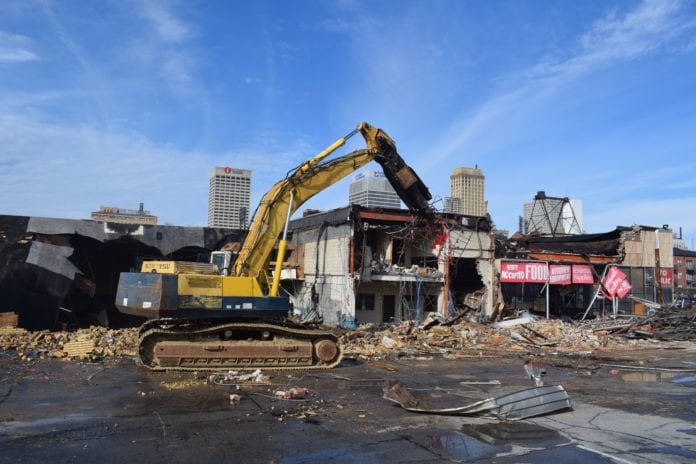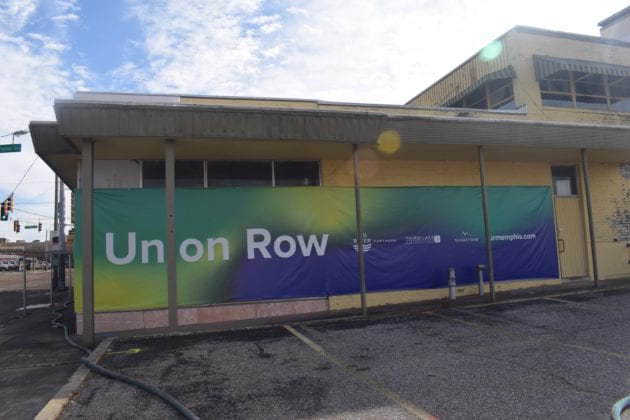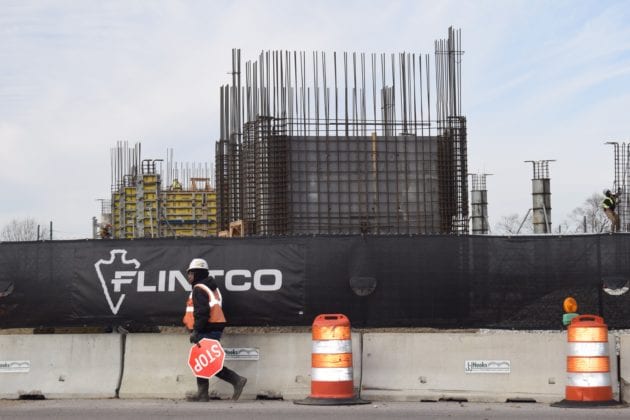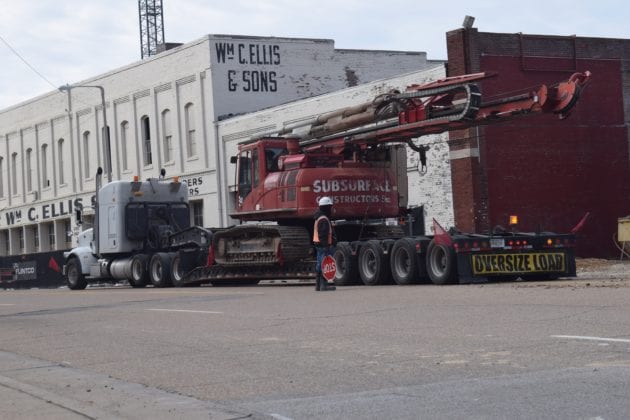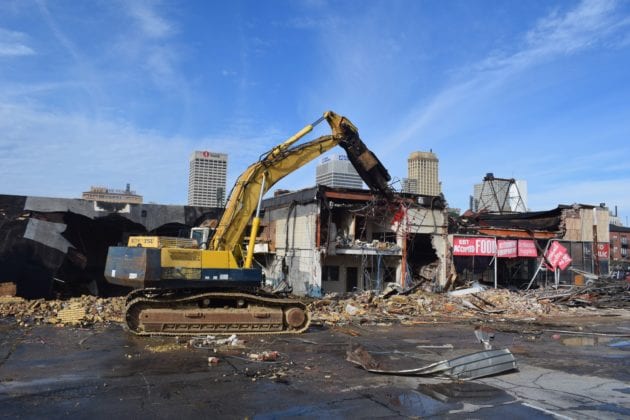Downtown Memphis is undergoing $5 billion in redevelopment projects – a transformation that can make the city more competitive and spur widespread economic benefits.
Local and non-local investors are lured by downtown’s land value (appraised at $1.1 million per acre), Fortune 500 companies, Mississippi River views, riverfront parks, famous Beale Street and incentives.
With 26,000 residents, downtown is also “more efficient to service and costs [the city] less money to cover police and fire [than other parts of Memphis],” says Jennifer Oswalt, Downtown Memphis Commission president/CEO.
Attraction to downtown skyrocketed after ServiceMaster announced moving its headquarters from East Memphis to the former Peabody Place in 2017. In 2018, Indigo Ag, an agricultural technology firm, relocated its HQ to Toyota Center office tower.
FedEx Logistics announced moving its HQ to the former Gibson Guitar Factory in February, and in June, Autozone confirmed plans to expand its downtown HQ, adding 130 new jobs.
Mixed-use developments are rapidly emerging, including billion dollar deal bookending south and north downtown.
Union Row, the $1 billion project covering roughly 20 acres in south downtown, is led by local developer Kevin Adams. Phase I construction, which begins in 2020 at a $750 million cost (originally $511 million), includes a hotel, market-rate apartments (with 20 percent affordable middle-income units), 300,000 square feet of office, retail and parking space, plus two grocery stores.
Adams, who seeks 28 percent Minority and Women-Owned Business Enterprise (MWBE) participation, recently announced that minority-owned B&W Excavation won 65 percent of the $1 million demolition contract. Montgomery Martin Contractors, lead contractor, will manage the remaining 35 percent. An additional $67 million will go to MWBE partners with the expanded project now totaling $210 million in MWBE spend.
Carl Person, CEO of Customized Solutions, leads Union Row’s MWBE engagement strategies.
“We’re glad to show Memphis we’re putting our money where our mouths are,” said Person.
“This is a game changer. This affords opportunities for individual advancement, company growth and job creation. This is what inclusion looks like.”
Pinch District Redevelopment, a $1.1 billion proposal by New York-based developer Tom Intrator, targets transformation of north downtown between St. Jude Children’s Research Hospital and Bass Pro Pyramid.
Phase I, projected to cost $600 million, includes 942 apartments and 370,000 square feet of hotel, retail, office and parking space.
Intrator seeks 25 percent MWBE participation. The proposal now heads to local and state legislators for deliberation and approval.
While some developments opened in time for 2020, more mixed-use projects are in the works, along with convention center upgrades, additional hotels and park enhancements.
- One Beale, a $250 million two-tower riverfront project, will open at 2020’s end. The site on Beale Street at Riverside Drive will include apartments, retail and office space, and a hotel.
- South City, a $250 million development near FedEx Forum, offers affordable apartments, shops, eateries, plus a business center and gym. South City opened this fall and replaces Cleaborn Homes and Foote Holmes – Memphis’ last public housing projects.
- Uptown, north of downtown, will undergo multiple redevelopments, including a $200 million transformation of the old Snuff District, a nine-building complex where agribusiness products were once produced. The developer, Orgel Family LP of Memphis, plans 550 apartments, 50 homes, 90,000 square feet of retail and office space, plus outdoor recreational space.
- The Clipper, a $250,000 million high-rise, will open Spring 2020 across from FedEx Logistics. Somera Road, Inc., a New York-based development firm, is constructing 300,000 square feet to accommodate a 250-room hotel, indoor parking, restaurants and boutiques. (Somera Road owns the FedEx Logistics property and the lot where The Clipper will erect.) Partners include Orgle Family LP of Memphis and Senate Hospitality, a national hotel management group.
- Memphis Renasant Convention Center (renamed in partnership with Renasant Bank) is a $200 million full renovation that will open in fall 2020. Plans include a column-free 118,000-square-feet exhibit hall, a new exterior concourse, event-prep space, 46 breakout rooms, a 28,000-square feet ballroom, digital way-finding technology and fine art. The project is paid for through tax revenue generated by downtown’s Tourism Development Zone.
- Hotel makeovers and converting historic buildings into boutique hotels are trending downtown. Hotel Indigo, Central Station Hotel and Arrive Hotel are among lodges opened in 2019, adding nearly 350 guest rooms to the goal of 2,225 (the number expected to draw larger conventions). For 2020, incoming hotel brands include Lowes, Hyatt, Aloft and more.
- Memphis River Parks Partnership developed two projects in 2018 to engage more citizens with the riverfront. River Park, located at Jefferson Avenue and Riverside Drive, offers picnic and play areas, and accommodates yoga, dance, music and kayaking activities. River Line, a 5-mile biking and walking trail, connects the riverfront from Wolf River Greenway to Big River Crossing.
- Tom Lee Park, the site pulling tourists in the tens of thousands nationwide for annual Memphis in May events, will be reconfigured in 2021 to include family-friendly sections.
Investment in the Central Business Improvement District will increase tourism, residents, corporate interest and the tax base, all of which benefit Memphis and its citizenry.
Locals are enthusiastic about new jobs and overall downtown modernization. However, common to all urban renewal efforts, many inquiries will surface.
- How can locals tap into thousands of new jobs (and MWBE opportunities) that revitalization will bring?
- How will downtown redevelopment influence nearby and further communities, including underserved neighborhoods where poverty exists?
- How do agencies vet potential companies and ensure that promises for jobs and financial returns are fulfilled as corporate incentives (tax breaks, etc.) are offered?
- What are plans for handling traffic detours and congestion throughout reconstruction?
- What are plans for public transportation during and after reconstruction?
- Are developers possibly undershooting or overshooting needs in multi-use projects?
- In the event of an economic downturn, what are the possible effects on renewal efforts?
- (For more details, visit the Downtown Memphis Commission at: www.downtownmemphis.com.)
NOTE: The New Tri-State Defender will provide information and updates on these and other topics throughout the 2020 Downtown Memphis revitalization process.


